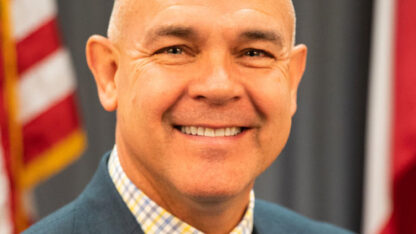People living with intellectual and developmental disabilities say one solution to Georgia’s workforce shortage is to hire them.
In a 2020-2021 report, National Core Indicators found that 54% of Georgians living with a disability want a paid community job, but cannot get one. That’s true even though 30% of them take classes or train to better their chances of gaining employment.
But efforts to form a commission focused on how best to expand resources for people with intellectual and developmental disabilities failed to pass by Monday’s Crossover Day, a deadline for bills to chart a smooth path to the governor’s desk.
Sponsors of the bill remain hopeful these key provisions can be tacked onto House Bill 520, which is designed to improve access to behavioral health services. The state Senate could still pass HB 520 this legislative session.
“The waiting list can be managed better, and (made) more transparent to the public, to work towards the goals of making Georgia an employment first state,” Harrell said.
“If they’re still on the waiting list, then families are having to take care of their loved ones all alone. There are some family support dollars available,” Harrell said. “But for people who have been on the waiting list a long time, sometimes these are parents who have adult children, and the parents themselves are aging and they’re getting worried. It’s like, what if something happens to me?”
Efforts to clear the 7,000-person waiting list for services through a Medicaid program have been complicated by a workforce shortage among caregivers who assist people with disabilities.
An updated budget proposal for next year unveiled this week in the House includes funding for a total of 375 more people to receive services, up 125 slots from the governor’s proposed spending plan. A Senate study panel last year recommended lawmakers increase funding for another 2,400 people this year to begin to make a dent in the waiting list.
Thousands of Georgians with disabilities are also either left out of Georgia’s workforce, which is facing an ongoing shortage, or in jobs where employers can legally pay them less than the federal minimum wage of $7.25 per hour.
So this week, Employment First advocates took to the Capitol to put a face to the low-wage worker with disabilities and persuade legislators that a better Georgia is one that provides equal opportunities for these underemployed workers.
Advocates said this starts with reforming code 14(c) of the Fair Labor Standards Act, a federal code that dates back to the 1930s and allows employers to pay people with intellectual and developmental disabilities a sub-minimum wage.
“At the time, the thought was that a person with intellectual disabilities or a significant impact of their disabilities would not be able to work in competitive employment,” said D’Arcy Robb, executive director of the Georgia Council on Developmental Disabilities. “So the idea was to make it legal for companies to pay them under minimum wage.”
According to the NCI report, 70% of Georgians with a disability attend day workshops or participate in sheltered workshops making on average $9.39 an hour.
“If you’re making subminimum wage, you’re bringing in very little money. And in our society, having money is a resource that enables you to live the life you want,” Robb said.
Many advocates for people with disabilities say they hope that more state lawmakers will begin to value the worth of all workers, even those who may need on-the-job support, so people with disabilities can have higher-paying, competitive jobs.
One of the most effective ways to get more people living with a disability in the workforce is to increase entrepreneurial opportunities for them.
And for people who just want to work in their communities, increasing the network of employers and service providers who offer supported employment could help fill Georgia’s labor shortage.
Graham’s team takes people to meet with potential employers, help build their resumes and make sure that their work environment is safe once they are hired.
However, because people with disabilities often bring in significantly lower wages, some of them risk losing their supplemental income from Social Security benefits when they work more than the limited amount of hours.
“Many of them only work 15 hours a week. If they work more than that it affects their Social Security check and could interfere with their benefits,” Graham said. “We have several individuals who no longer get a Social Security check because of the hours they’re getting, sometimes they owe money.”
This story was provided by WABE content partner Georgia Recorder.









